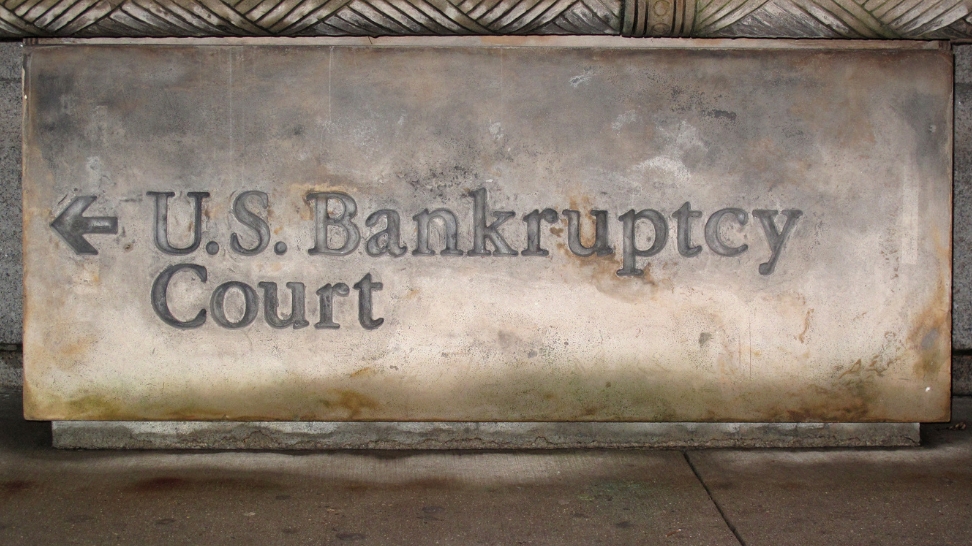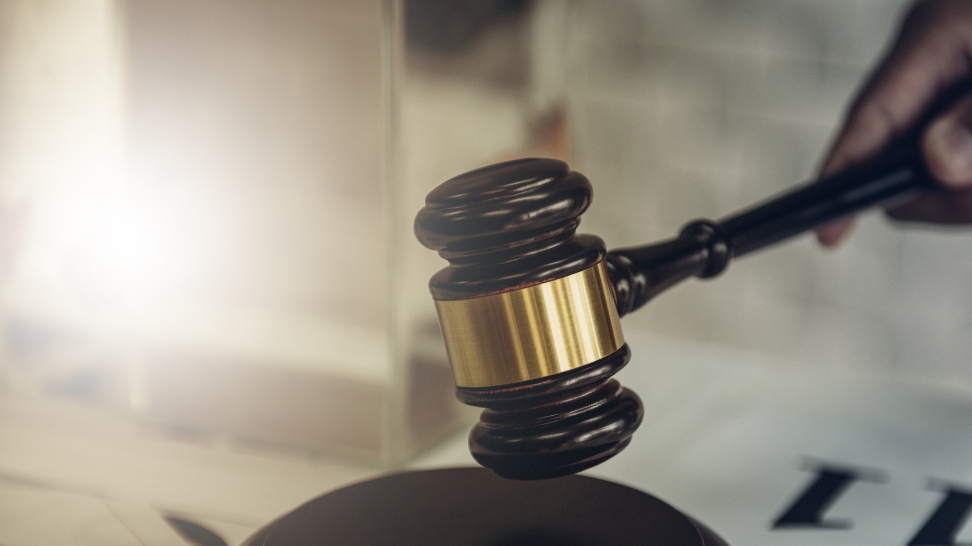In bankruptcy, a “third-party release” is a legal provision that allows a court to release a non-debtor party from claims or liabilities related to the bankruptcy case. If you’re navigating the complex world of bankruptcy or merely curious about recent legislative changes and court rulings, this guide sheds light on the topic.
Understanding Third-Party Releases
There are two types of third-party releases, voluntary and involuntary. Voluntary third-party releases are those to which the creditors have consented. On the other hand, involuntary third-party releases free a non-debtor without consent of the creditors.
The Role of Chapter 11 in Bankruptcy
Business entities normally file for bankruptcy under Chapter 11. In this chapter, the debtor can propose a “plan” that deals with its debts through a restructuring and reorganization, a liquidation, a sale, or a combination of those. Third-party releases are often used in bankruptcy cases to help facilitate the resolution of complex bankruptcy proceedings and to encourage settlements between debtor and creditors.
The Legal Landscape: Bankruptcy Code’s Perspective
The Bankruptcy Code does not state whether third-party releases are permitted, and since they are not prohibited, they are permissible so long as they are consistent with the Bankruptcy Code.
Here’s how it works:
- Debtor: This is the entity (usually a person or a business) that has filed for bankruptcy protection.
- Creditors: These are individuals or entities to whom the debtor owes money or has financial obligations.
- Third Parties: These are individuals or entities that are not the debtor but may have some connection to the debtor’s financial situation. For example, they could be co-defendants in a lawsuit, guarantors of the debtor’s debt, or parties involved in contracts with the debtor.
The Growing Trend of Nonconsensual Releases in Reorganization
In some bankruptcy cases, there may be disputes or claims against third parties that are related to the debtor’s financial troubles. These third parties may seek to be released from liability or claims arising from the debtor’s bankruptcy case. Recently, corporate debtors have increasingly tried to include nonconsensual third-party releases in chapter 11 reorganization.
The Judicial Process: Assessing Third-Party Releases
It’s important to note that the granting of third-party releases is not automatic, and it typically requires court approval. The court will assess whether such releases are fair and necessary for the successful resolution of the bankruptcy case, taking into consideration the rights and interests of all parties involved.
Benefits of Third-Party Releases in Bankruptcy
The bankruptcy court has the authority to grant or deny third-party releases. This means that the court can approve a settlement or reorganization plan that includes provisions releasing specific third parties from any claims or liabilities related to the debtor’s bankruptcy. This can be beneficial for various reasons:
- Encouraging Settlements: Third-party releases can incentivize third parties to negotiate with the debtor and creditors to reach settlements, as they may be more willing to do so if they can obtain a release from further legal actions.
- Streamlining the Process: Resolving claims against third parties within the bankruptcy case can help streamline the bankruptcy process and reduce litigation-related costs and delays.
- Promoting Reorganization: In some cases, third-party releases can facilitate the debtor’s successful reorganization by eliminating potential legal obstacles or uncertainties.
Historical Perspective: American Companies and Bankruptcy Courts
American companies have been using bankruptcy courts to decide product-liability cases for decades, but several recent cases have received increased criticism on this practice. Bankruptcy proceedings stops litigation, prevents new lawsuits, and combines all claims in one court. The use of third-party release arrangements can mean companies are cleared from related liabilities. Critics state that bankruptcy proceedings are intended for companies that are truly insolvent, not simply facing litigation.
The Current Debate: Third-Party Releases in U.S. Bankruptcy Cases
There are current discussions and legal challenges in the United States regarding the use of third-party releases in bankruptcy cases, particularly in Chapter 11 cases. The issue of third-party releases has been a topic of debate, and some courts were becoming more cautious about granting such releases, especially when they involved non-consenting parties or releases of claims that were not directly related to the bankruptcy case.
Several factors have contributed to the scrutiny of third-party releases in bankruptcy:
- Constitutional Concerns: Some courts raised constitutional concerns about the ability of bankruptcy courts to discharge or release claims against non-debtor third parties without their consent. Critics argued that this may infringe on due process rights.
- Increasing Challenges: Creditors and other stakeholders have become more assertive in challenging the use of third-party releases, leading to more judicial scrutiny.
- Ambiguity in the Law: Bankruptcy laws and rules regarding third-party releases were not always clear, leading to varying interpretations and inconsistent rulings among different jurisdictions.
Spotlight on Controversy: The Purdue Pharma Case
Use of third-party releases in product-liability cases has become increasingly controversial. Of note is the recent Purdue Pharma case. The Sackler family, owners of Purdue, agreed to provide funds to the opioid abuse victims for ten years in exchange for release from any further liability. The plan was approved by the Bankruptcy court for voluntary and involuntary claimants.
Unpacking the Second Circuit’s Decision
On appeal, the Second Circuit considered whether the releases used on the Purdue Pharma case were statutorily authorized by the Bankruptcy Code. After concluding that the Bankruptcy Code does permit third-party releases, the Second Circuit addressed the issue of when such releases are appropriate.
The Court listed seven non-exclusive factors for courts to consider when determining whether to approve an involuntary third-party release:
- Whether there is an identity of interest between the debtor and the to-be-released party (such as an indemnification relationship) such that a suit against the non-debtor is tantamount to a suit against the bankruptcy estate
- Whether claims against the debtor and non-debtor are “factually and legally intertwined”
- Whether the scope of the release is appropriate (e., whether its “breadth” is “necessary to the Plan”)
- Whether the releases are essential to the reorganization and not an attempt by the third party to manipulate the process for its own advantage
- Whether the non-debtor party receiving the release contributed substantial assets to the reorganization
- Whether the impacted class of creditors “overwhelmingly” support the plan and its releases
- Whether the plan provides for the fair payment of enjoined claims.
In this case, the Court established a basis for assessing the use of involuntary third-party releases. Despite this important ruling, the validity of third-party releases in chapter 11 cases does not have the clarity parties seek in restructuring.
Legislative Responses to Third-Party Releases
Largely in response to the Purdue case, members of the U.S. House and Senate introduced legislation intending to stop the use of third-party releases. The Senate bill, S. 2497, was introduced by Sens. Warren, Durbin, and Blumenthal on July 28, 2021. The bill proposes a new section to the Bankruptcy Code that would prevent the approval of a plan that would discharge, release, or modify the liability of any non-debtor party.
While this bill has not yet made it into law as of the time of this writing, many legal analysts expect legislative action on this point before long. As a result, there is likely to be prolonged uncertainty regarding this issue, which will affect debtors and potential creditors whose claims may be dependent on the use of third-party releases.
The Complex Landscape of Bankruptcy Law
The specific rules and criteria for granting third-party releases can vary depending on the jurisdiction and the type of bankruptcy case. Bankruptcy law is complex, and anyone involved in bankruptcy proceedings, whether as a debtor, creditor, or third party, should seek legal counsel to understand their rights and obligations.
The Future of Asset Protection: Beyond Third-Party Releases
For reliable asset protection against potential claims and litigation, people should not expect third-party releases to work effectively in the future. Instead, consider legal solutions such as offshore asset protection trusts established in the Cook Islands. Offshore trusts can be used to help protect your wealth from being included in court cases in your home country.
A Cook Islands Trust has multiple benefits, legal requirements, and ongoing compliance obligations in order to work as intended. If you would like to learn more, schedule a consultation with an experienced attorney who can help you make an informed decision. If you would like to get a personalized plan based on your specific situation, contact Blake Harris Law. We have helped hundreds of families nationwide secure their financial stability and legacy.





